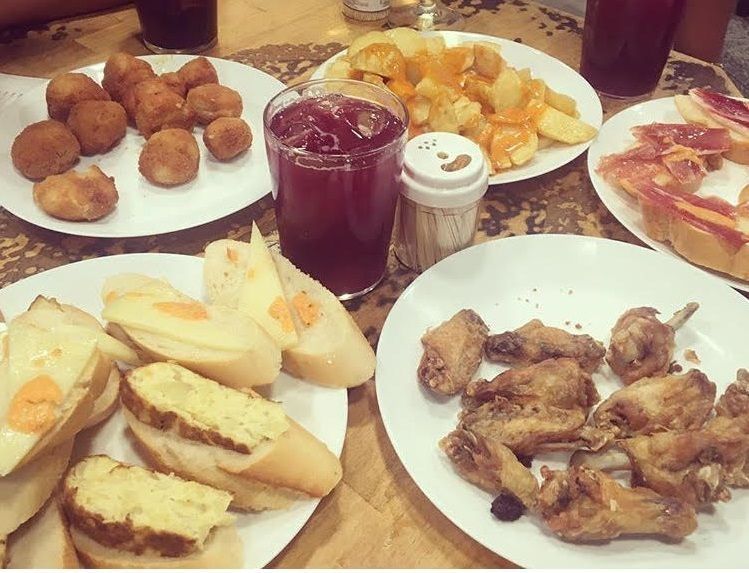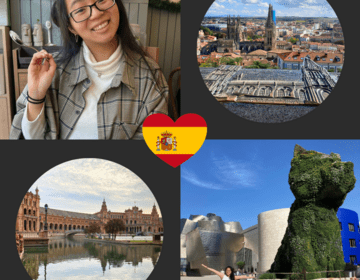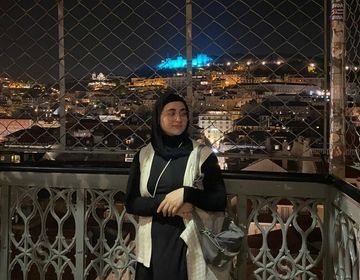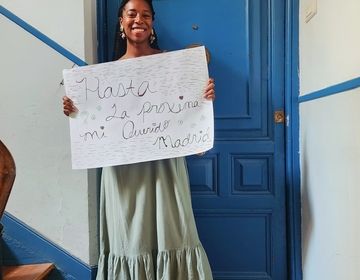Advice For Prospective Teach in Spain Professional Applicants
I have been in this program for four months now, so I can’t help thinking back on things. I can’t believe that intense, two-week training session was so long ago. When I first applied to the program, I didn’t really know what to expect. CIEE was helpful with advice, but you don’t really know how everything works until you get here. If I were able to go back and give advice to my past self, here are somethings I would want to consider:
1.) Study Grammar, but don’t worry if you don’t pass the first test
When you first arrive in Spain, you will have an intensive training on English grammar as well as methods for teaching English. The grammar portion is notoriously difficult, we spoke to people from the other program and they struggled as well. I would recommend reviewing grammar before you get here, just the basics will help you. That being said, I also reviewed grammar before arriving and still did poorly on the diagnostic (don’t worry, I passed the actual test). The grammar test is intense and you won’t really know what to expect when you arrive here. You will take a diagnostic test and then spend the next week and a half reviewing grammar in class. It is difficult, you will still be recovering from jet lag, but pay attention in class. I also recommend paying attention to the diagnostic test, as it will help prepare you for the format of the actual test. Everyone in our group passed the actual test the first time and even if you don’t, you still can stay in the program, but you will have to take review lessons.
CIEE also provides an online grammar review for before you leave. For me, this was helpful as it had been several years since I had studied grammar. The course covers the basic concepts and is very clear and easy to understand. I do think the grammar course we had on arrival in Spain was much more in depth, however it’s good to have the basics down before you get here. That way you can focus on reviewing the more difficult grammar concepts that were not covered in the earlier course.
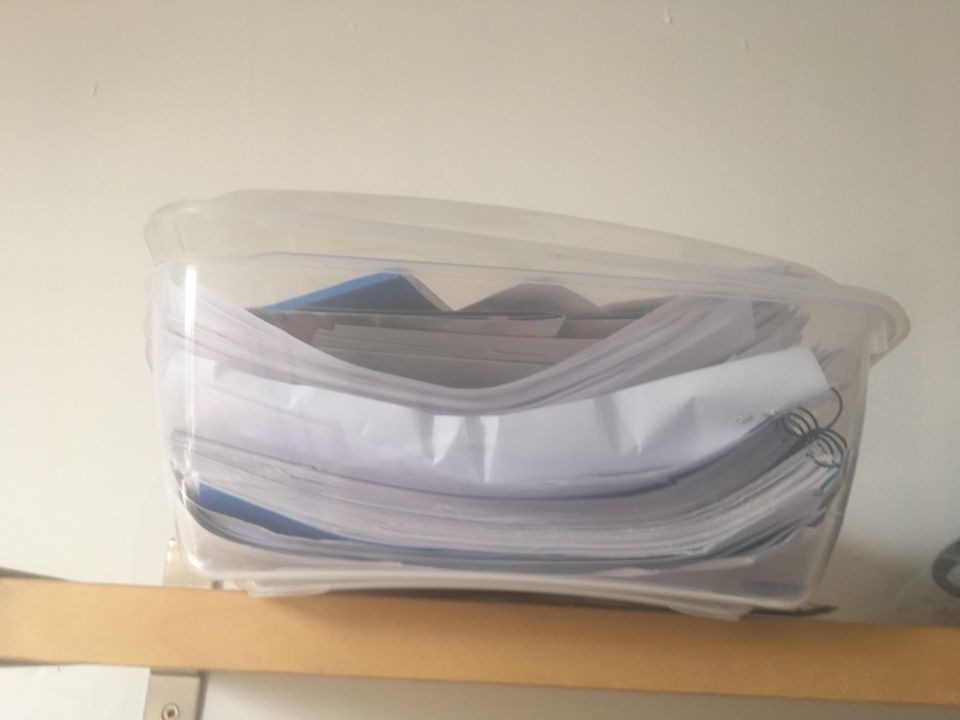
2.) Make Copies of Important Documents and Keep them Organized
I made copies of almost everything before I came here, passport, visa, etc. I recommend getting a hanging folder or box and organizing them before you come. If you are prepared, all the bureaucratic processes will be much smoother. You can make copies at the office when you get here as well, but if you already have them that means you can use this time to study grammar or apartment hunt instead. Also bring copies of prescriptions, family addresses and phone numbers just in case.
3.) When you get here, don’t bring your passport unless you really need it
If you lose your passport, you will need to go home. The visa process is so difficult and it’s impossible to get a replacement visa if you lose yours. It would be so horrible to have one pickpocket ruin everything. You should never need your passport except when opening your bank account or traveling out of the country. During orientation, they will give you directions on how to get a notarized copy of your passport page. This copy will work as your passport when entering buildings until you get your NIE.
4.) Review Spanish
I speak Spanish very well, but it took a lot to get back into the rhythm after not having used it for years. I recommend a bit of review, since you will need to use Spanish when setting up your bank account and looking for apartments. Even just watching Spanish tv shows or listening to the news will help you get used to hearing it again.
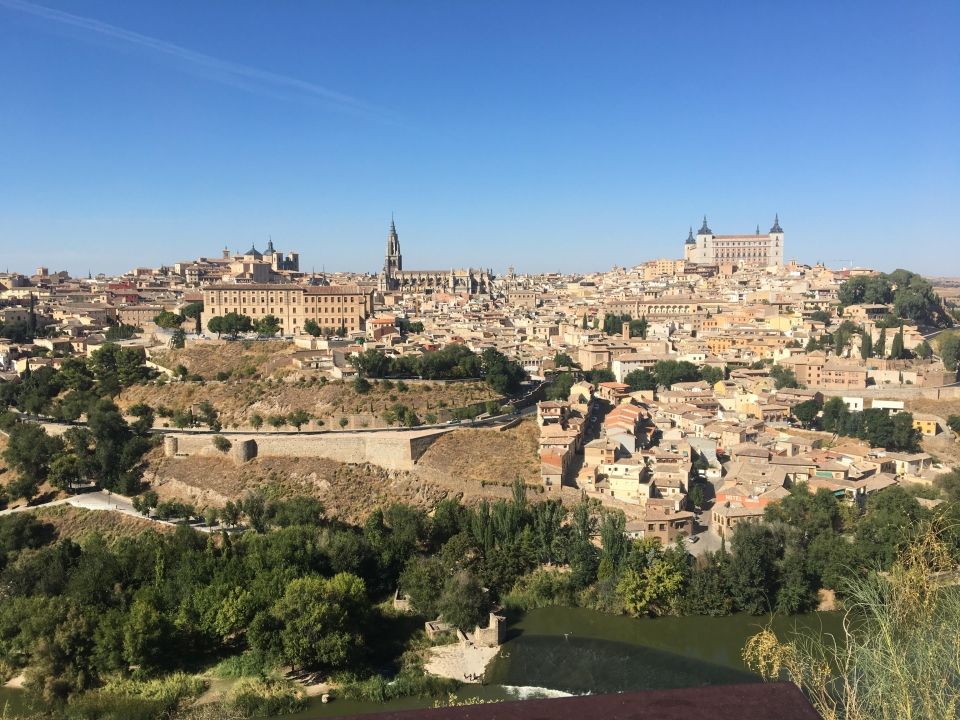
5.) Save Money
You will need to cover about two months of expenses before you get your stipend. This includes your security deposit for your apartment, rent, groceries, costs for setting up your abono and cell phone, as well as any traveling you may want to do. You only get half a stipend your first month since you only work half a month, so in reality you go about two months without a full stipend. If you are coming for the program that starts in January, you should save even more since you will have an unpaid month of vacation in August. . When you do get here, budget. Cook instead of eating out all the time. I know getting tapas can be fun, but they are deceptively cheap. It’s easy to lose track of your spending and then wonder how you spent 50 euros on going out in one week
6.) Get the Carne Joven Card when you get here
Since I am 26, a lot of the museum discounts do not apply to me anymore. I found out about the Madrid youth card, Carne Joven (yes that translates to ‘young meat’) and realized that a lot of museums are free or discounted with it. You can get it if you are 30 or younger and it comes with a lot of discounts for movies, bus tickets, travel insurance, and so much more, so it is worth it even if you still are young enough to get into the Prado for free. Their office is located at Calle Recoletos, 1, second floor. Bring a copy of your passport, your mailing address, and a copy of your visa or NIE card and they will give you your card there.
7.)Pack a professional wardrobe
You don’t need a suit and tie, but you will need to dress smart for classes. Slacks and a shirt are a good go to, for women dresses, skirts, and sweaters are also acceptable. When you get to know your companies, you can dress as casually as your students, but for the first few classes you should plan for business casual. If unsure, you can always buy professional clothing in Spain.
8.) Invest in a good coat
This may seem silly, but I was told it didn’t rain much in Madrid, so I didn’t pack one. This year we had one of the rainiest falls in Madrid and I really wish I had one then. Even if it doesn’t rain in Madrid, chances are you may travel somewhere with a lot of rain and will be grateful that you have a rain coat. It also does get cold in Madrid, so pack for the Winter.
9.) Pack some food/kitchen supplies/household items
Again, this may seem like silly advice, but when we arrived our apartment didn’t have sheets, towels, or any kitchen supplies. This might be different for you, so I’m not going to suggest packing a full set of frying pans. Frying pans are heavy, and you can always buy them here. However, if there is something specific that you know you will want in your apartment, take it, especially if it is small. A girl in our group brought some spices from home because she knew they would be expensive to buy here. Don’t overpack, but also don’t get rid of something you really want either. Take whatever will help you feel at home here.
10.) Relax
Moving to a new country is stressful and you will feel overwhelmed at times. It is okay, but remember to breathe and spend time with your family and friends. You will have a lot of support once you arrive in Madrid, so you are on not doing this on your own.
Moving to Spain was a very confusing but exciting process to go through. I felt a mix of anticipating all the trips I could plan and panicking that I was going to forget a very important document at home. It’s very difficult to prepare for something when you aren’t exactly sure what to expect. You can prepare as much as possible and still feel whiplash and culture shock upon arrival. Above all else, the best advice I can give is to learn to embrace some uncertainty. One of the managers at the company described living in Spain as an emotional rollercoaster and I have found this description to be accurate. Just know that all does work out in the end, even if it is frustrating to deal with. Even when it is frustrating, do not forget to enjoy life in Madrid. Any stress and anxiety you are feeling now will be worth it once you are here.
Related Posts
TWICE with CIEE: Kayleigh in Spain (PART 2)
Kayleigh is a CIEE alum who participated in CIEE's Teach in South Korea program AND CIEE’s Teach in Spain Volunteer program! CLICK HERE to read her experience in Korea. WHY... keep reading
CIEE Volunteer Spotlight: Meet Layla!
Where are you from? What was your academic background or career before teaching abroad? I am Canadian, specifically Québécoise. In Quebec, students are required to attend community college (CEGEP) before... keep reading
